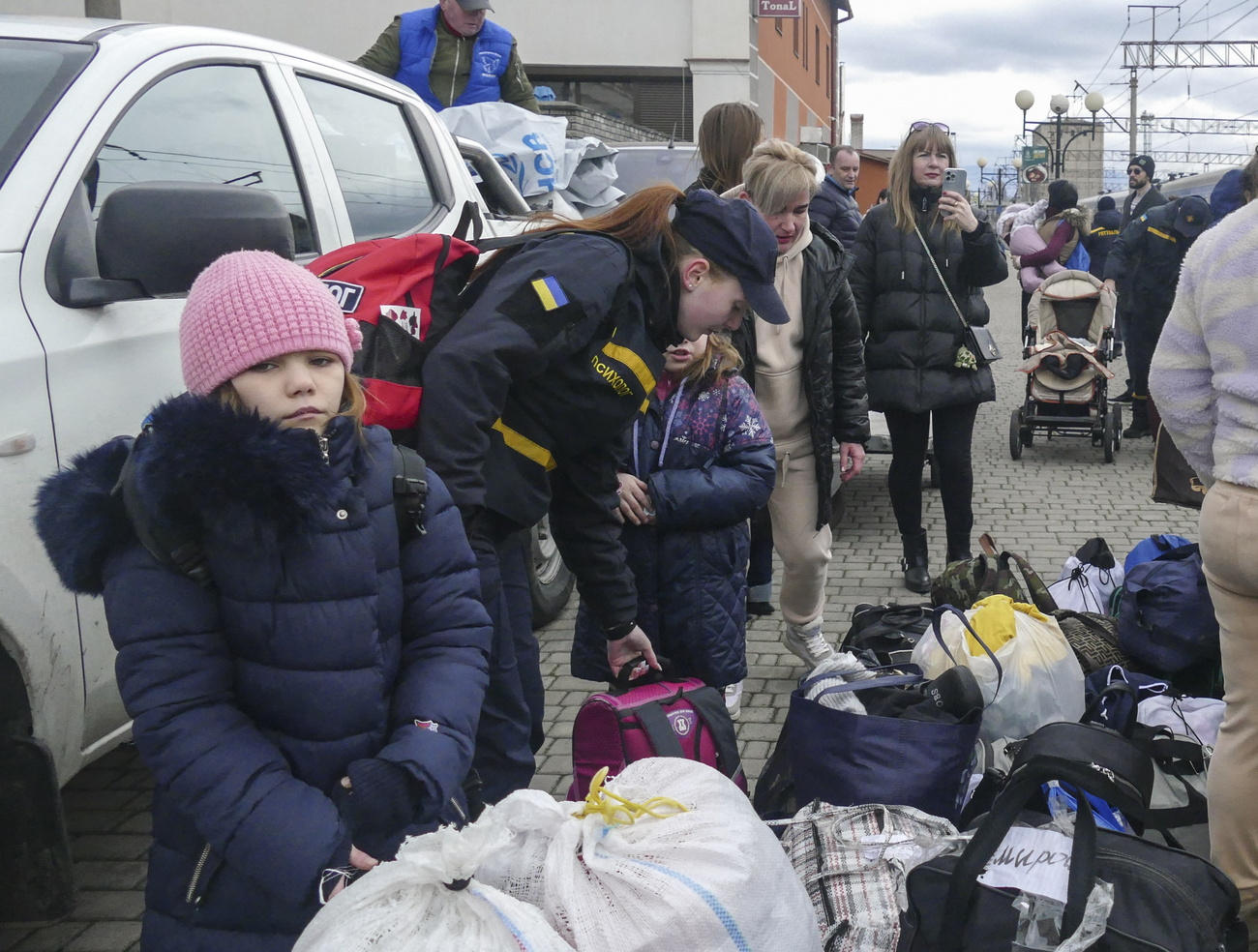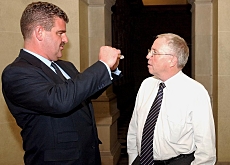
EU labour accord splits Swiss People’s Party

About a third of Swiss People’s Party parliamentarians are not toeing the party line on opening the labour market to the new European Union countries.
At least 20 members of parliament have told the media that they oppose the party’s official position, which is against extending an existing EU accord on the free movement of people.
The issue has also divided the country – according to a recent poll, 44 per cent would vote “no” to removing restrictions for citizens of the new EU member states on the right to reside and work in Switzerland. A nationwide vote is due to take place on September 25.
At the weekend People’s Party parliamentarian Peter Spuhler revealed to the SonntagsBlick newspaper that he was breaking ranks and that he was not alone.
He said that at least a third of the rightwing party’s parliamentarians were hoping for a “yes” vote when the country goes to the polls later this year.
“For the farmers and the businesspeople in the party, free movement is important to their existence,” Spuhler said.
Based in Bussnang, canton Thurgau, Spuhler is CEO and owner of Stadler Rail, which specialises in exporting railway vehicles.
“The European market is important for us; if it becomes problematic for my firm to export to Europe, I will be forced to relocate Swiss posts to other countries,” Spuhler told the newspaper.
Spuhler also hinted that he was willing to form a breakaway committee endorsing the benefits of saying “yes” to the accord, if the need arose.
His comments echoed those of party colleagues, who took part in a survey organised by the business newspaper Cash.
This revealed that 24 out of the 63 parliamentarians belonging to the People’s Party were in favour of extending the EU accord.
Benefits
Political scientist Karin Gilland Lutz told swissinfo that proponents in Spuhler’s mould are aware of the benefits that the current set of bilateral accords with the EU have had on the Swiss economy.
“They foresee that a rejection of this issue would be very negative for the Swiss economy [given] the risk that the EU might cancel the whole set of bilateral agreements, and this is what they want to prevent,” Gilland Lutz said.
For the political researcher, the current divisions within the ranks are potentially bad news for the party.
“This is a real problem for them and a really difficult issue, perhaps the most difficult to date. The party needs to get its house in order long before September if they are going to continue to be an effective force in Swiss politics,” stressed Gilland Lutz.
One way around the current state of affairs would be to use its close ally, the isolationist Campaign for an Independent and Neutral Switzerland, to help tone down the divisions within the party.
“The People’s Party could for example let this group be the big ‘no campaigner’ rather than the party itself,” Gilland Lutz suggested
She added that if the Campaign appeared on all of the posters and advertisements in the press, it might make the intra-party divisions seem less painful.
Silent figurehead
Party figurehead Christoph Blocher, who is also the country’s justice minister, has been mostly silent on where he stands on the issue.
However, he has publicly said that extending the accord on the free movement of people is a step which Switzerland “should dare to take”.
Blocher could also be biding his time before he makes a stronger statement, given that the vote is still three months away.
“Certainly at this point in time, Blocher has not yet played his usual role, which has been to stamp a very, very clear mark on the party position,” said Gilland Lutz.
She suggested that he could also have learnt from past experience when he voiced a position on certain referendums, which did not match the rest of the cabinet’s stance.
“So possibly he has learnt from this or modified his behaviour after criticism. It’s quite possible that he himself doesn’t agree with [the party line], that he belongs to this group of businesspeople within the party who would actually like to ratify freedom of movement,” Gilland Lutz said.
As for the future, the political scientist predicted that the party would have to work hard if it did not want to lose voter support.
“They will have to come up with a different strategy on how to deal with internal divisions so that the party line doesn’t seem so muddled or unclear to voters, who look to parties to see how they should interpret the information about Europe,” she added.
Voters’ fears
At the beginning of the month, 54 per cent of Swiss voters said “yes” to ratifying the Schengen and Dublin accords with the EU, which will bring closer cooperation on justice and asylum issues.
As to whether this vote would have a positive influence the outcome of the September polls, Gilland Lutz was not so sure.
“It’s probably easier to play on people’s fears to a greater extent [in September] as the country’s security is a fairly abstract issue compared to job security which is something that many people think about or experience on a personal level,” she said.
Last week the EU’s foreign-affairs commissioner Benita Ferrero-Waldner declared that the EU would not tolerate a “no” in September.
She warned that thanks to a so-called “guillotine clause”, all of the existing bilateral accords between the EU and Switzerland could be nullified.
swissinfo, Faryal Mirza
On September 25 the Swiss will decide whether to extend an existing free-movement accord to include the EU’s ten new member states.

In compliance with the JTI standards
More: SWI swissinfo.ch certified by the Journalism Trust Initiative



























You can find an overview of ongoing debates with our journalists here . Please join us!
If you want to start a conversation about a topic raised in this article or want to report factual errors, email us at english@swissinfo.ch.